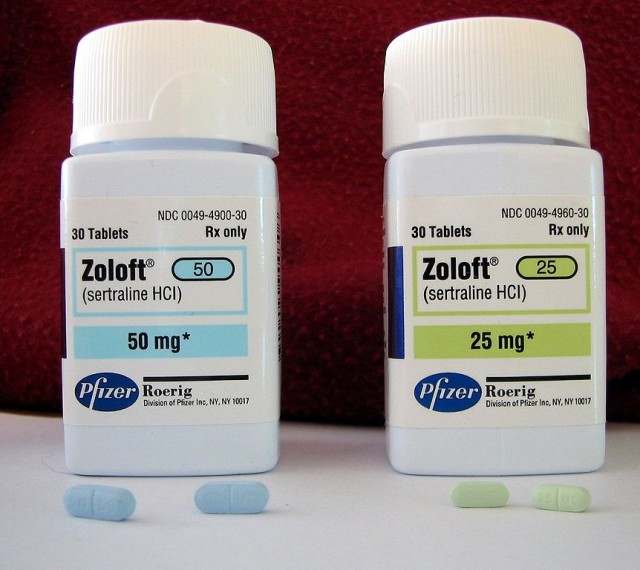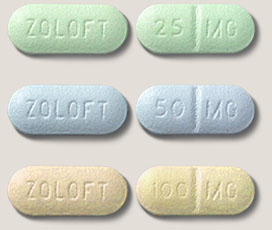
Zoloft® (generic name sertraline) is one of the most widely prescribed anti-depression drugs in the world. The number of people suffering from Zoloft® side effects is unknown, as many people may not even be aware that certain physical/emotional/mental Zoloft® side effects even exist. Zoloft® belongs to a group of drugs known as Selective Serotonin Reuptake Inhibitors (SSRIs). Almost all reported Zoloft® side effects meet the same profile as side effects caused by other SSRIs, although the general public remains in many cases unaware of potentially lethal Zoloft® side effects, such as suicide, as well as the repercussions of taking other SSRIs.
 Common Side Effects
Common Side Effects
Any Zoloft® side effects may appear more pronounced in children, who are also susceptible to such Zoloft® side effects as excessive movement or twitching, malaise, trouble concentrating, abnormal thinking, nosebleeds, weight loss, manic or excited behavior, or rapid mood swings. Common side effects of Zoloft® according to the Zoloft® web site are dry mouth, upset stomach, decreased appetite, fatigue, trouble sleeping, sexual dysfunction, diarrhea, tremor, feelings of agitation, indigestion, and increased perspiration.
Zoloft® Birth Defects Risk
The U.S. Food and Drug Administration (FDA) requires the strict “black box” warning to be placed on the label of Zoloft®. However, this has to do with other side effects, and does not alert patients to the possible dangers of mixing Zoloft® and pregnancy.
The FDA lists it as a pregnancy category C drug. This means Zoloft® can be the cause of congenital defects in newborns. One of the more alarming Zoloft® birth defects statistics has been reported by the Mayo Clinic, which found that when taken during the last half of pregnancy Zoloft® users are six times more likely to deliver a child with certain birth defects.
Types of Heart Defects Associated with SSRIs
There are several types of heart defects that are believed to be associated with Zoloft® and other SSRIs. One of the reported Zoloft® heart defects include a congenital malformation in which one or more holes is present in the heart. Conditions such as this can lead to congenital heart failure.
Signs and Symptoms of Heart Defects
Symptoms of congenital heart defects can include the following:
- Difficulty feeding and a failure to gain proper weight
- Delayed physical development
- Difficulty breathing
- Bluish skin from lack of oxygen
- Fainting or passing out
The defect can sometimes be so slight that symptoms do not appear for many years or until adulthood. It is necessary for a doctor to confirm a heart defect, which can be accomplished through a variety of tests. These should include at least one of the following:
- EKG
- MRI
- Ultrasound
- Chest x-ray
Who Qualifies for a Zoloft® Lawsuit?
Anyone who took Zoloft® during pregnancy and gave birth to a child with birth defects should consult with a Zoloft® attorney. It is also possible that Zoloft® may have caused birth defects that you are not yet aware of. While many congenital birth defects will be evident early in life through various symptoms, some can stay hidden for an indefinite period.
Birth defects from drugs can cause a lifetime of problems for the baby and family, including the enormous financial strain of treatment. Many congenital birth defects require multiple surgeries to correct the condition, if correction is even possible.
While only a doctor can diagnose serious conditions like congenital defects, there are symptoms to look for:
- Difficulty feeding and a failure to gain proper weight
- Delayed physical development
- Difficulty breathing, sometime leading to bluish skin from lack of oxygen
- Fainting or passing out
If your child displays any of these signs, you should take him/her to a doctor immediately.
Talk to a Zoloft® Attorney Today
If you have taken the drug Zoloft® during pregnancy and your child suffers from a heart or other birth defect, a Zoloft® attorney can advise you on your rights to compensation. For more information, please contact us today using the email form on this page.








